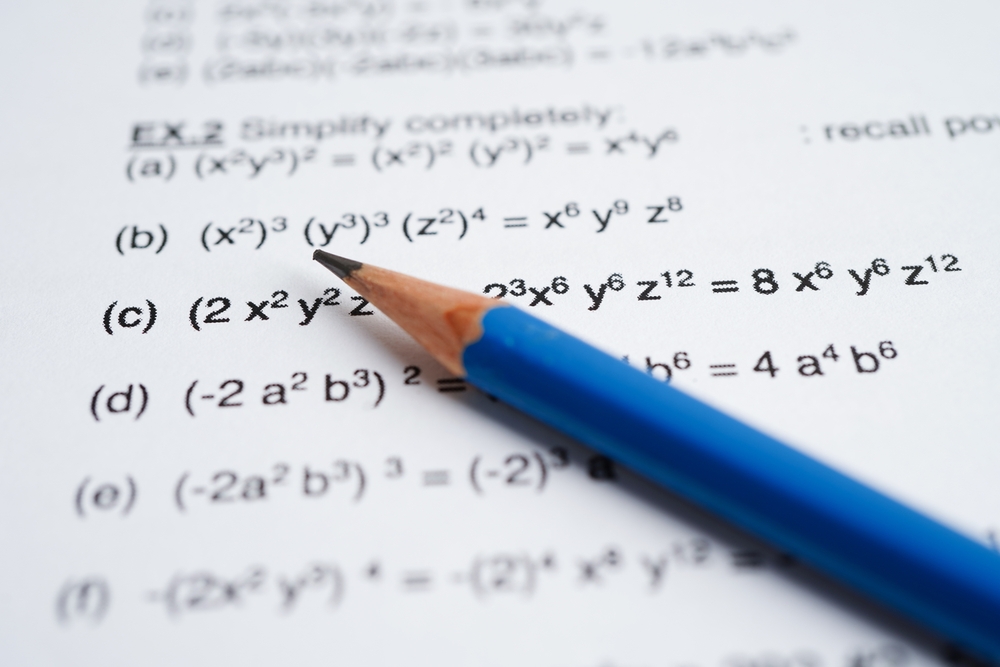The International Mathematical Olympiad (IMO) is a mathematical olympiad for pre-university students and is the oldest of the International Science Olympiads. It is “the most prestigious” mathematical competition in the world. The first IMO was held in Romania in 1959. It has since been held annually, except in 1980. More than 100 countries participate.
The content ranges from extremely difficult algebra and pre-calculus problems to problems in branches of mathematics not conventionally covered in secondary or high school education, and often not at university level either, such as projective and complex geometry, functional equations, combinatorics, and well-grounded number theory, of which extensive knowledge of theorems is required.
Calculus, though allowed in solutions, is never required, as there is a principle that anyone with a basic understanding of mathematics should understand the problems, even if the solutions require a great deal more knowledge. Supporters of this principle claim that this allows more universality and creates an incentive to find elegant, deceptively simple-looking problems which nevertheless require a certain level of ingenuity, often a great deal of ingenuity, to net all points for a given IMO problem.
The selection process differs by country, but it often consists of a series of tests which admit fewer students at each succeeding test. Awards are given to approximately the top-scoring 50% of the individual contestants. Teams are not officially recognised—all scores are given only to individual contestants, but team scoring is unofficially compared more than individual scores. Contestants must be under the age of 20 and mustn’t be registered at any tertiary institution. Subject to these conditions, an individual may participate any number of times in the IMO.

Format of the Competition
The competition takes place over two consecutive days. Each day three problems are given to the students to work on for 4.5 hours. Following the general format of secondary or high school competitions, it does not require calculus or related topics, though proofs using higher mathematics are accepted.
Scoring
Scoring on each problem is done on a 0-7 scale (inclusive and integers only). Full credit is only given for complete, correct solutions. Each solution is intended to be in the form of a mathematical proof. Since there are six problems, a perfect score is 42 points.
Awards
Medals and honourable mentions are given out. Sometimes other prizes and awards are given to contestants too.
- Gold – the top 1/12 of individual scores.
- Silver – the next 2/12 of individual scores.
- Bronze – the next 3/12 of individual scores.
- Honourable mention – any student who receives a score of 7 on any one problem but did not receive a medal.
- Special Prize – Given to students who score 7 in one problem with an especially insightful solution.
Team Competition
There is no official team competition. Unofficially, however, the scores of each team are compared each year where a team’s score is the sum of their individual scores.
The Singapore & Asian Schools Math Olympiad contest not only stretches the brightest students but is aimed at improving confidence for all students. Some 350 thousand contestants take part each year.
For K-12 products and resources, visit the Mangahigh, which provides multi-year access to the games-based platform for maths. Students can learn and practice maths through games-based teaching and learning platforms.
Additional Math Educational Resources
To support educators and parents in making maths enjoyable and accessible, AISL Mall partners with a range of innovative Math learning platforms and educational resources.
NovaLearn stands out as an EduTech company dedicated to celebrating each child’s individuality. It offers a safe, interactive e-learning platform filled with a diverse library of games and edutainment videos. NovaLearn provides courses in various subjects, including STEAM, Art, Engineering, English, Future Ready, Mandarin, Math, Science, and Technology, allowing children to learn anything, anywhere, anytime.
Smartick is a personalized math learning platform that adapts to the individual skills and needs of each student. With daily 15-minute lessons, Smartick covers various math topics, from basic arithmetic to complex word problems, all presented through engaging games and activities. The platform boasts an impressive success rate, with 83% of users improving their grades, making it a valuable tool for building a strong foundation in math.
By integrating these resources into the classroom or home learning environment, educators and parents can create a more engaging and supportive atmosphere for students. These tools help foster a positive attitude towards maths, encouraging students to explore and enjoy the subject while developing essential skills for their future.








